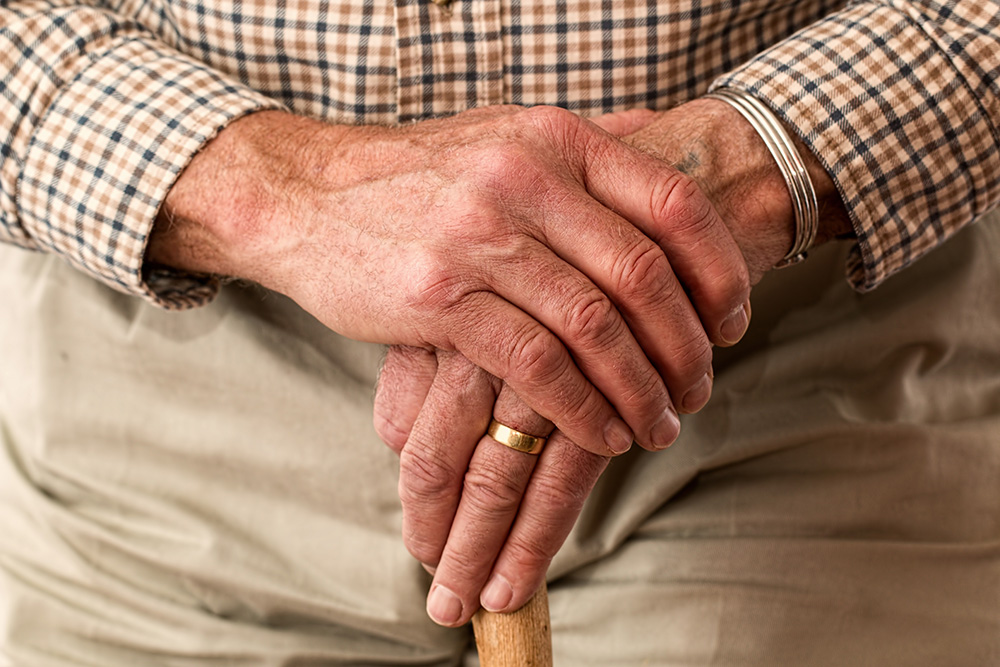
(Pixabay/Steve Buissinne)
For over a year, I thought I was learning to live alone. My wife, Fran, had died after 48 years of marriage and I was, for the first time in all those years, alone. I ate on the coffee table in the living room while watching the news or Netflix. I moved my office from downstairs into her office on the main floor. I converted our guest bedroom, the room that housed the hospital bed she died in, into a meditation chapel. I raised the blinds to the level she liked even though she wasn't here. I did the cooking, laundry and ironing. I inherited the family bookkeeping, but not the meticulous notebook she maintained for all those 48 years. I started a jigsaw puzzle — which was her thing, never really mine. I slept alone.
I was learning to live alone.
But something didn't feel right. So I talked with people who have lived alone longer than me, and they were helpful. My cousin, who lost his wife five years ago, said his dog added a lot to his life. But we'd never had pets. Priest friends offered practical advice about cooking and daily routines, but they'd never had a wife.
I took other steps. I gratefully became more embedded in our son's family, and that deeper involvement remains an enriching experience. But they are one and two generations removed from my life history, and I still come home to an empty house. My friends are wonderful and I enjoy being with them; but in the past, those times were spent as couples. My meditation room opens the door to the beyond within me, but has not yet taken me outside those four serene walls.
Living alone is a difficult life lesson.
Advertisement
Then the little voice in my head, or the Spirit in my soul (in any case, I call her Whisper), told me to change my thinking. I am not learning to live alone; I am learning to live with absence. There is a difference.
Living with absence implies a previous presence; living alone connotes being by myself. There is presence hiding within absence. More precisely, I am learning to live with an absence that incorporates a presence.
My first reaction was that it was a distinction without much of a difference. In terms of practical living, it makes no difference if you are living alone or if you are living with absence. But Whisper, who is sometimes more annoying than consoling, insisted there was a significant difference and it was in my best interest to figure it out and get on with my life.
She is seldom wrong and always leaves it up to me to do the hard work. And what she says to me often fits for other people also, even if the specific circumstances vary. After all, we all experience loss and grief.
I followed her lead and dove into absence. I found more levels of absence than I thought, just like there are many kinds of presence.
We all know that there are varying degrees of intensity in presence. Sometimes we are in the same room with a loved one, and hardly know they are there. Sometimes we feel very close to that same loved one when they are miles away. Sometimes we are in a crowded room and feel closer, more present to some people than to others. Sometimes we are only slightly aware that others are there. Sometimes we are fully connected to someone on the phone or at the end of an email or text and are barely conscious of someone else 3 feet away from us. We all experience degrees of presence.
Living with absence implies a previous presence; living alone connotes being by myself. There is presence hiding within absence.
That same variation also applies to absence. But we are not as aware of the diversity within absence. Absence hits us more generically, especially when it is more intense.
Fran's absence was always heavy. Little things, like hanging my shirts on her side of the closet, and big things, like not snuggling together in bed at night, are all triggers to feelings of grief, loss, regret and sadness. But the intensity of absence does not always match the severity of the particular loss. I need to discriminate between the intensity of different kinds of absence, like I distinguish between the different kinds of presence.
I resorted to a system Fran and I created and used for decades when we made some of our decisions together. It was simple but effective: We ranked our feelings about an issue. Was it a one (very important), two (somewhat important) or three (only a slight preference)? As we compared our numbers, we solved many insignificant issues — and a few major ones — and avoided potential conflicts and stress.
When I applied this system to the absence I felt with her death, my grieving became easier because I could separate the heavy stuff from the light stuff, and I knew where to focus my emotional and spiritual energy. One absence at a time, until her presence balances her absence. Naming my loss as "absence" rather than "being alone" makes it easier to cope with this new, more diversified interpretation of absence.
I am doing better now. Whisper agrees.




